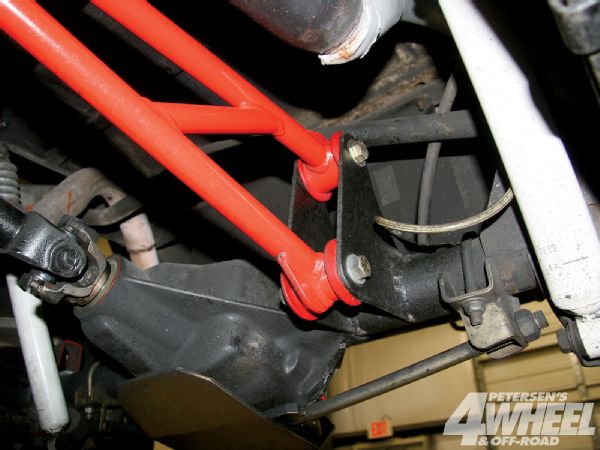
 Ali Mansour
Brand Manager, 4WD & Sport Utility
Ali Mansour
Brand Manager, 4WD & Sport Utility
Leaf-spring suspensions are great. The springs package easily, there's not a lot of complicated geometry involved, and best of all they're cheap and easy to come by. So what's the downside to these long metal suspension members?
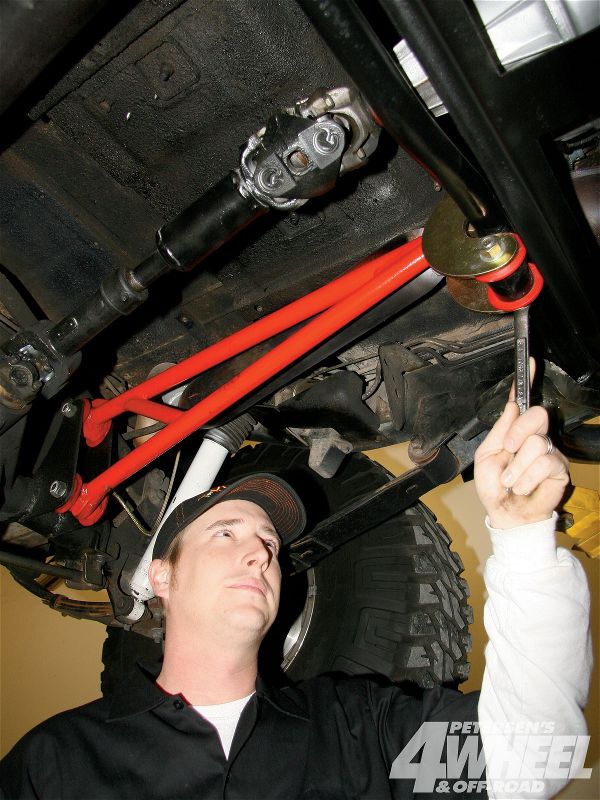 Bar Design
Bar DesignWell, unless you're running the springs under the axle, then your rig is susceptible to the rear axle rotational havoc known as axlewrap. It's not to say that running the springs under the axle will completely free you from the wrap, but the negative effects are definitely more dramatic with the springs atop the axle.
For most 4x applications the effects of axlewrap are most noticeable in the rear of the vehicle. Since the leaf springs are responsible for supporting the weight of the rig and locating and keeping the axle in place, more often than not an instant burst of power and traction will overwhelm the leaves. When the springs reach their giving or tolerance point, the leaf pack will curve into an S-shape and the rear pinion will rotate skyward. This wrapping motion can induce violent wheelhop and easily annihilate U-joints, driveshafts, and in some cases transfer cases. High horsepower, big tires, long and soft leaf packs, rounded and worn spring perches, and lift blocks only amplify axlewrap.
An easy way to combat these rotating forces is to incorporate an antiwrap or traction bar. An antiwrap bar is a devise used to prevent the axlehousing from rotating under load.
The most common type of antiwrap bar is a single bar comprised of reinforced tubing shaped in the form of the letter A. This style bar works like a radius control arm to keep the axlehousing from rotating, while a series of bushings and a forward mounted shackle allow the suspension to still articulate and travel freely.
A properly installed traction bar will prolong the life of your drivetrain and suspension components in addition to increasing traction both on and off road. To find out more about traction bars we headed to Low Range 4x4 in Wilmington, North Carolina. While there, we took a detailed look into a Skyjacker antiwrap kit installed on a '92 Jeep Wrangler YJ that was equipped with a spring-over conversion. For more on traction aids and axlewrap solutions visit our website, www.4wheeloffroad.com.
Length & Strength
The length of the traction bar will differ by application, but it's important that the bar be long enough to cycle with the suspension. If the bar is too short it may bind the suspension or rear driveline. Generally, the longer you can make the bar the better. Antiwrap bars such as this Offroad Design one not only control the axle, but also act as a skid and driveline protector. The use of thick-wall DOM tubing is highly recommended.
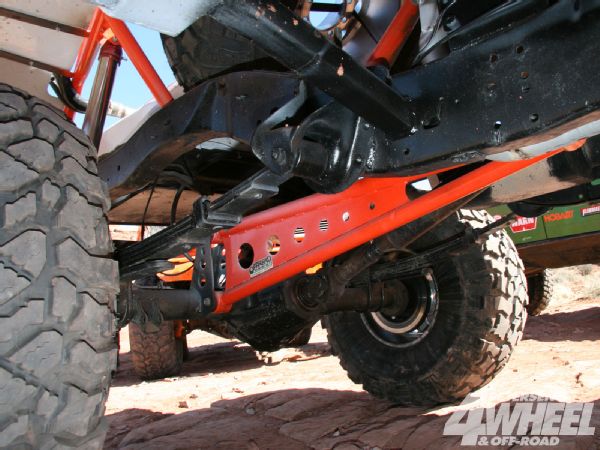
Shackles
When your suspension cycles, the axle moves more than just up and down. To compensate for this movement the traction bar will need to attach to a floating shackle. Hard-mounting the bar at both the frame and axle end can cause binding and damage the suspension.
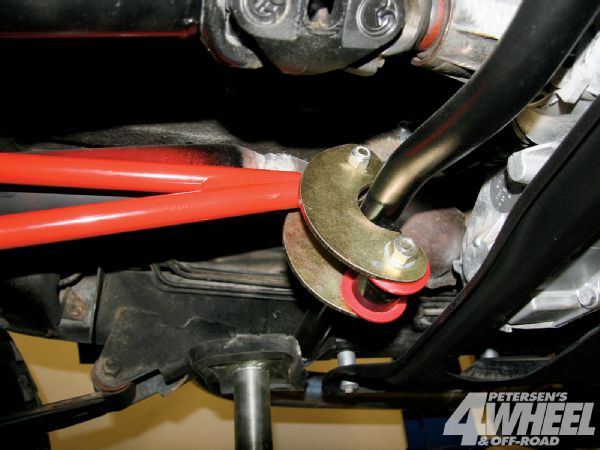
Kits, Crossbars & Traction
While you don't need to be an expert to fabricate your own traction aid, it does take time, good tools, and a bit of thought. For those of you who need a quick traction fix but don't have time to create a system yourself, companies like Off Road Design and Skyjacker have installer-friendly kits for your rig.
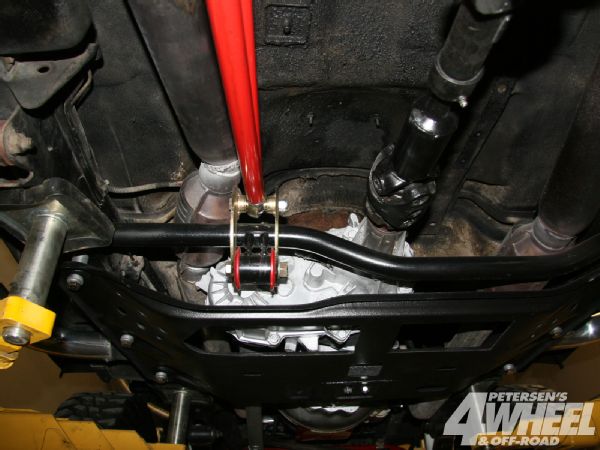
Bushings
To allow the rear suspension and axle to articulate without binding, bushings should be used at the attachment points of the bar. Johnny Joints or high-grade Heims are not a bad investment, but standard urethane bushings usually do the trick.
